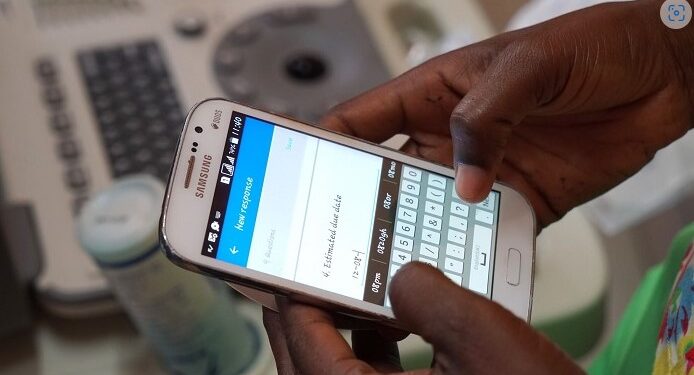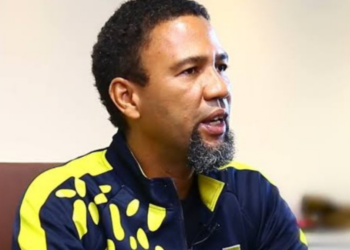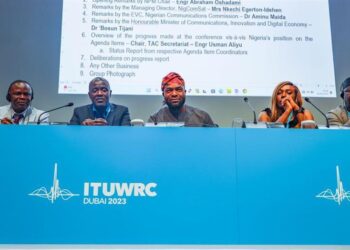Story highlights
- Despite economic challenges, spending on telecom services by Nigerians has increased, with MTN and Airtel reporting significant rises in Average Revenue Per User (ARPU).
- Both MTN and Airtel experienced growth in data and voice consumption. MTN saw a rise from 7 GB to 8.9 GB of data usage per month, while Airtel customers increased their data usage to 6.3 GB per month from 5.0 GB.
- Operators are advocating for tariff reviews to reflect economic realities and support continued investment and expansion, despite the government’s current stance against price hikes.
Data from two leading mobile network operators in Nigeria, MTN and Airtel, have revealed Nigerians consume up to 9GB of data monthly on average.
The increase in data consumption on the two networks led to an increase in Average Revenue Per User (ARPU) for the telecom operators. This allows the telcos to sustain the growth trajectory of their revenue amid challenges in the operating environment.
The financials of the telcos indicate that data, which used to play second fiddle in terms of revenue is now becoming the main source of earnings for the telecom service providers as consumption grows.
Specifically, an average MTN customer spent N1,869 monthly, an increase of 16.3% from N1,607 per month recorded in 2022. This reflected the 27% increase in data consumption by subscribers on the MTN network from 7 Gigabytes per month in 2022 to 8.9 Gigabytes in 2023.
MTN’s data revenue for the period under review also jumped from N764.8 billion in 2022 to N1.07 trillion in 2023.
In terms of spending on data, Airtel revealed that the average customer on the network spent N3,127 ($2.4) on data monthly as of March 2024. This shows 19% growth year on year compared with the N2,606 ($2) recorded in the same period in 2023 (currency conversion is based on Airtel’s reported exchange rate of N1,303/$ at the end of March 2024).
Data usage per customer on the Airtel network increased by 25.4% to 6.3 GB per month in the period under review from 5.0 GB in the prior period.
What Nigerians spent on voice calls
According to the company’s financials, MTN subscribers spent an average of N2,508 monthly on voice calls in 2023. This shows a 14.4% increase in spending when compared to N2,192 ARPU recorded in 2022. The increase in spending on voice calls pushed MTN’s voice revenue to N1.14 trillion from N1.03 trillion in 2022.
Also, an analysis of Airtel Nigeria’s revenue shows that an average customer spent N1,694 ($1.3) per month on voice calls as of March 2024. This represented a 21.5% increase year on year when compared to N1,433 ($1.1) recorded in the previous year.
What it means
The data from the telecom operators indicates that despite the tough economic conditions that forced many Nigerians to cut down on spending on certain needs, they spent more on telecom services, especially, data.
Speaking with Nairametrics, the Chief Executive Officer of Jidaw Systems Limited, Mr. Jide Awe, said,
The increase in spending on telecommunication services is an indication of greater awareness of the benefits and opportunities that can be derived from the services, especially Internet access. According to him, remote working and digital activities accelerated by the COVID-19 pandemic opened many eyes and contributed to the rise in data consumption in Nigeria.
“This is an indication that telecommunication services are being used to improve efficiency and effectiveness in key areas in the society and economy—communication and sharing, learning, commercial transactions, work from home, faster information search, responsiveness to inquiries, pricing comparisons, networking, and partnering. This is creating and will continue to create new types of Internet-enabled jobs as well as indirect jobs that may be created offline by increased Internet activities, he said
Also speaking, the Executive Secretary of the Association of Telecommunications Companies of Nigeria (ATCON) Mr. Ajibola Olude, said the operators’ aggressive push for service expansion is driving the increase in subscriptions for mobile services.
More insights
Mobile network operators in Nigeria are currently advocating for tariff review to reflect the economic realities and allow them to price appropriately. Their argument is premised on the need to mitigate current challenges and the fact that the last time telecom tariffs were reviewed in Nigeria was 11 years ago, while businesses in all other sectors of the Nigerian economy have reviewed their prices over time in tune with the current realities.
While the telecom operators will need to secure the approval of the regulator, the Nigerian Communications Commission (NCC) to effect any price change, the government has said it is not in support of price review for now.
In his first official response to the call for a tariff increase, the Minister of Communications Innovations and Digital Economy, Bosun Tijani, at an industry event held in Abuja last week said increasing data, voice, and text message prices is not the “sole or optimal solution” to the sector’s challenges. He urged the companies to explore innovative solutions to counter inflationary pressures and high operating costs.
























